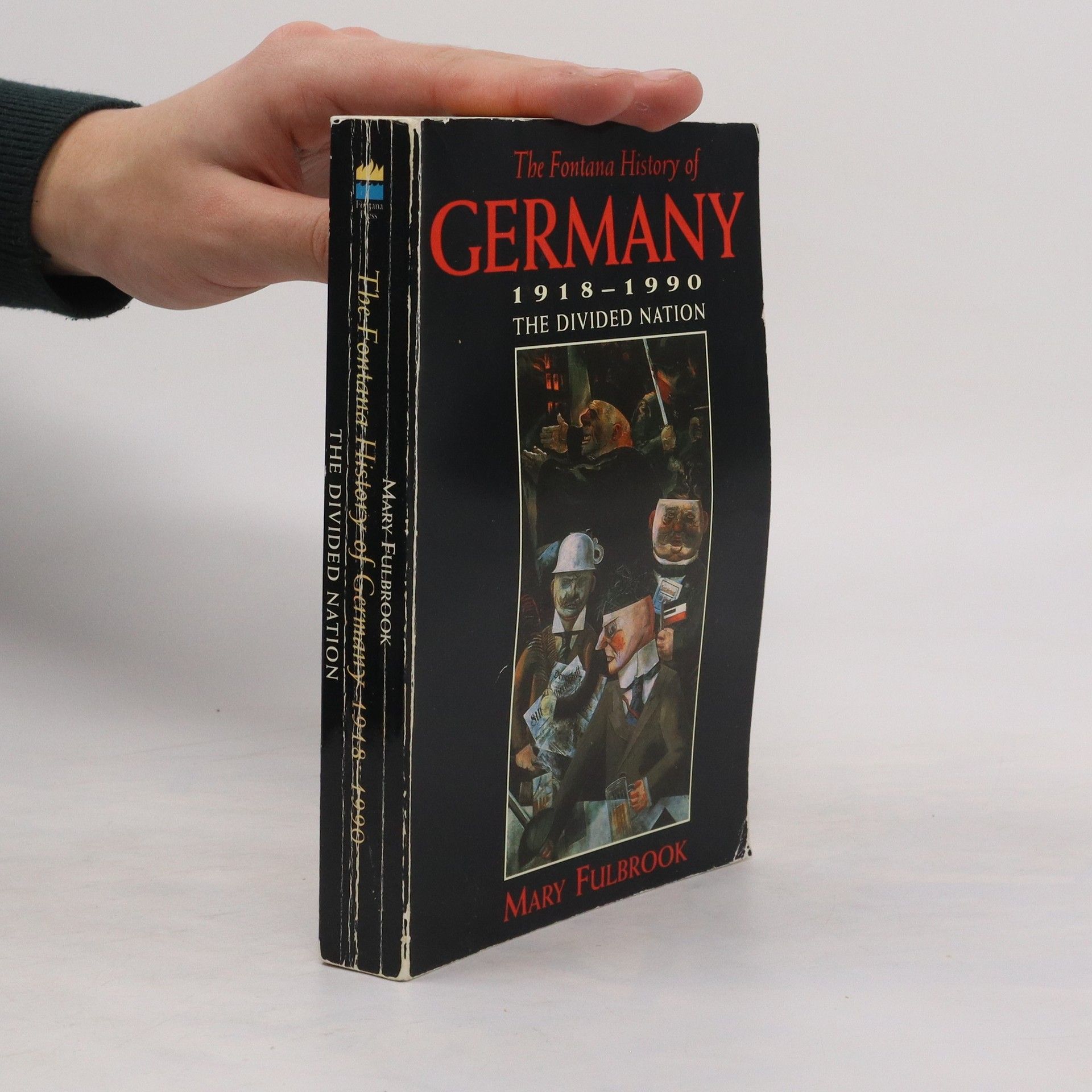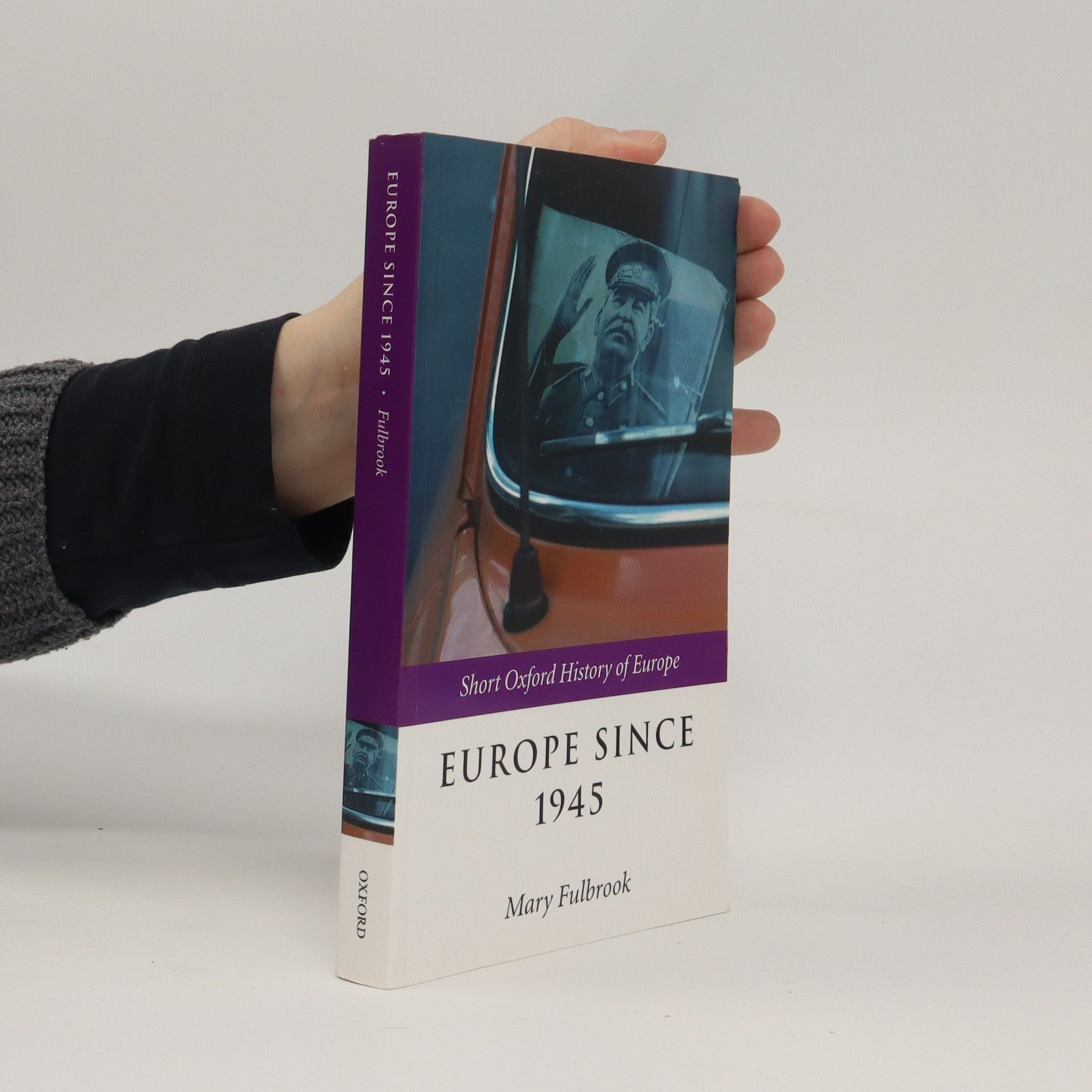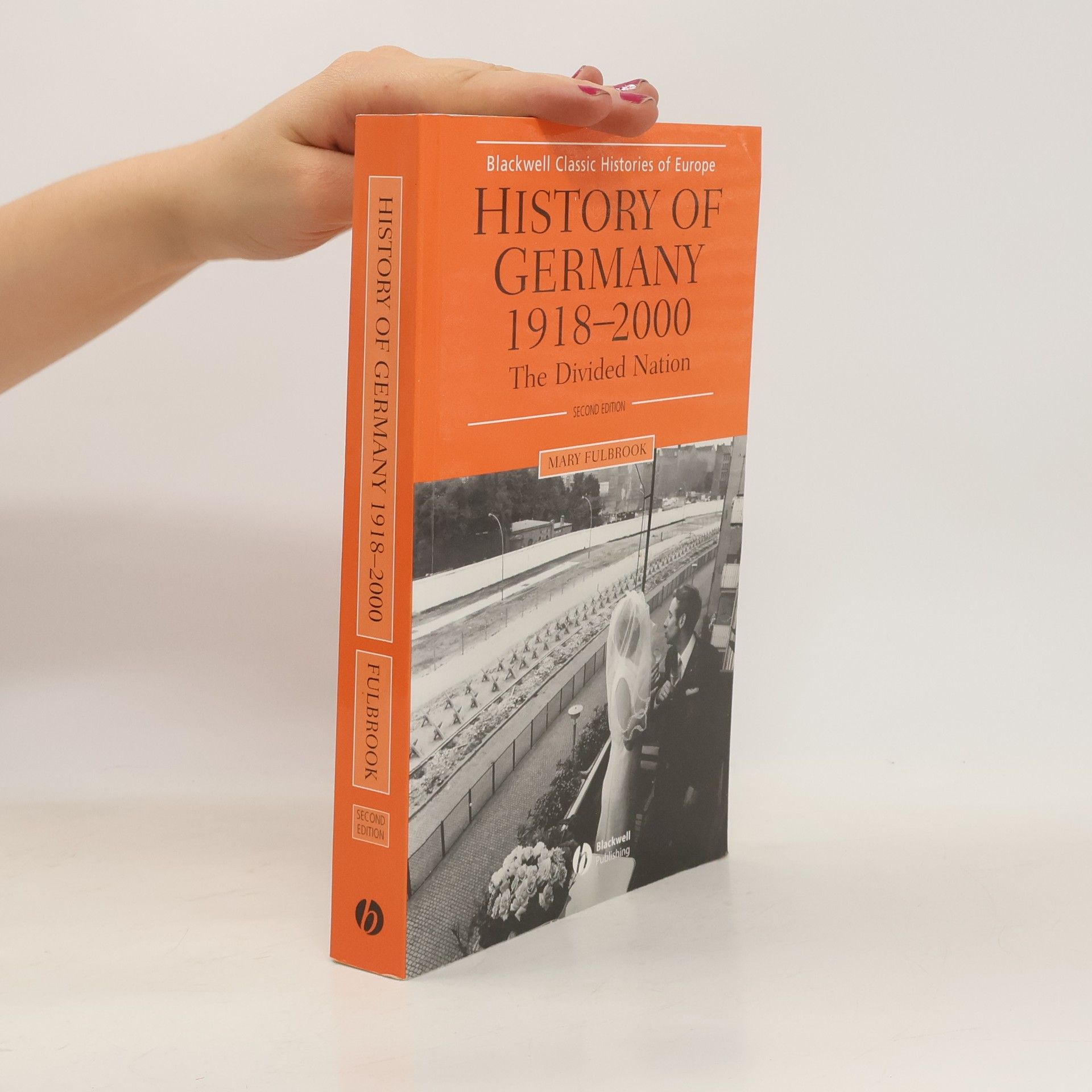La compleja historia alemana ha dado origen a una larga serie de debates y muy distintos enfoques interpretativos. En este libro se ofrece al lector una síntesis precisa, desde la Edad Media hasta nuestros días, que aporta gran cantidad de material historiográfico en su exploración de los factores sociales, políticos y culturales que han definido el rumbo de esta nación.
Mary Fulbrook Libros
Mary Jean Fulbrook es una distinguida académica e historiadora británica cuyo trabajo profundiza en las complejidades de la historia alemana. Su extensa investigación abarca diversos campos, incluyendo la religión y la sociedad en la Europa de la modernidad temprana, la naturaleza de las dictaduras alemanas del siglo XX y el impacto duradero del Holocausto en Europa. Fulbrook también se dedica a la historiografía y la teoría social, examinando críticamente cómo se construye e interpreta la historia. Su obra académica ofrece profundas perspectivas sobre las intrincadas fuerzas sociales y políticas que han dado forma al continente europeo.







Reckonings
- 672 páginas
- 24 horas de lectura
Reckonings documents how Holocaust victims have sought justice over the decades and the haunting disparity between crime and punishment.
The two Germanies, arising from the unpromising ashes of defeated Nazi Germany, came to represent opposing models of state and society. The Federal Republic established itself as a remarkably stable democracy and successful social market the German Democratic Republic developed an apparently exemplary form of "actually existing socialism" and became a pillar of the Soviet bloc. Then in 1989, the "gentle revolution" in East Germany added a new twist to the collapse of Communist rule. With rapid reunification, the united Germany of 1990 faced new challenges as the unprecedented transformation created a multitude of economic problems and social tensions. Previously published in 1992 as "The Two Germanies", this book has been fully revised and updated to take account of later developments in German history.
This acclaimed textbook offers a comprehensive exploration of modern German history, crafted by a prominent scholar. It provides in-depth analysis and insights into significant events and themes, making it an essential resource for students and enthusiasts alike. The new edition features updated research and perspectives, ensuring relevance in the study of Germany's complex past.
The book brings home the extraordinary waves of transformation that have washed across Europe in the second half of the twentieth century sketching out the major general patterns of this change, and exploring some of the local themes and variations in different parts of Europe. The result is both illuminating and engrossing.
Covering all major aspects of German history from the Weimar Republic through reunification, this new book offers a remarkably rich, insightful survey of a difficult and controversial subject. It integrates East German history more fully than any previous account, offering a precisely nuanced picture of life in the GDR and a compelling account of the roots of the 1989 revolution, and incorporates the latest research in social and economic history to deepen and vivify the political narrative. A unique advantage is its full, and fully accessible, examination of current historiographical debates in the field. Comprehensive, cogent, and judiciously balanced, The Divided Nation will become the standard reference on this important subject.
This third edition of Mary Fulbrook's much-admired book provides a clear guide to German history from the early middle ages to the present day. Since the second edition in 2004, there have been significant changes in Germany, Europe and the wider world. This new edition captures these dramatic new developments.
The two Germanies, arising from the unpromising ashes of defeated Nazi Germany, came to represent opposing models of state and society. schovat popis
Blackwell Classic Histories of Europe: History of Germany, 1918-2000
The Divided Nation - Second Edition
- 352 páginas
- 13 horas de lectura
This accessible study traces the dramatic social, cultural and political tensions in Germany since 1918. For the second edition, revisions have been made to incorporate the results of recent research, an epilogue covering the years 1990–2000 has been added, and the suggestions for further reading and the bibliography have been updated. An accessible study of the dramatic social, cultural and political tensions in Germany since 1918. Treats German history from 1918-2000 from the perspective of division and reunification, covering East and West German history in equal depth. Covers the self-destructive Weimar Republic, the extremes of genocide and military aggression in the Nazi era, the division of the nation in the Cold War, and the collapse of communist East Germany and unification in 1990. Offers a persuasive interpretation of the dynamics of twentieth-century German history as a whole. New edition includes an updated bibliography and an epilogue covering the years 1990-2000.
Berlin
- 254 páginas
- 9 horas de lectura
The book offers an engaging exploration of Berlin through ten vignettes, highlighting its historical layers and transformations. It delves into the city's unique past by focusing on specific locations, illustrating how these sites shape Berlin's identity and ongoing re-imagination. Mary Fulbrook examines the complex legacies that continue to influence the city's experience and perception today.
